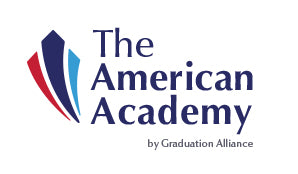Going Back to High School as an Adult
Posted on February 19 2024

If you left high school without graduating and are now an adult, it’s not too late to go back to school and finish what you started.
A high school equivalency isn’t your only option, either. You can earn a standard high school diploma, just like you would have gotten as a teenager, as an adult. However, as you know, life gets more and more complicated the older you get, so there are many things to consider before continuing your education as an adult. Continue reading to prepare for your return to school and get answers to some of your frequently asked questions.
Can Adults Go Back to High School?
Absolutely.
Oftentimes, adults think that once they've aged out of the public school system, their only option is to earn an equivalency diploma. This isn’t the case, and there are a variety of programs available to help adults earn their high school diplomas.
There are programs available oftentimes through state departments of education, local nonprofits, and private online high schools. We’ll get more into researching programs and finding a good fit for you in the next section.
Questions to Ask Before Returning to School
Tips for Going Back to School as an Adult
Keep your support team in the loop
Keep your support team updated with your progress so they can encourage and support you throughout your high school journey. No win is too small when you’re working toward a big goal.
See if your work experience will count as course credits
If you’re over the age of 18, odds are you have at least a year or two of work experience under your belt. When you’re working on re-enrolling and having your new school review your transcript, make sure to ask about work experience credits.
Some high school programs offer course credits for work experience. This could help you get re-started on your education a few steps closer to graduation than you would have been with just the credits from your transcript.
Familiarize yourself with the resources available to you
Your school will likely provide a list of resources to you, such as ways to contact your teacher or academic advisor or access tutoring services, libraries, and online platforms. Make sure to keep this in a place where you can find it easily if you run into any barriers.
Explore your interests
Depending on what program you choose and how many credits you still need to earn before graduation, you may have the opportunity to take elective courses. It can be tempting to choose courses that could be easy for you, but this is a great opportunity to explore your interests and learn something new rather than just satisfying a credit requirement.
Celebrate your accomplishment
Graduating from high school, whether you’re 18 or 48, is a huge accomplishment! When you graduate, celebrate your hard work. You deserve it!
Frequently Asked Questions
Should I get a high school diploma or an equivalency diploma?
The decision is totally up to you. A high school equivalency diploma (commonly referred to as a GED) has become almost ubiquitous with a standard high school diploma, though there are several key differences.
Earning a GED is based entirely on test scores. You take exams in several different subject areas, and if you pass, you get your equivalency diploma. This can be a quick way to obtain the credential, but some people don’t test well or suffer from test anxiety.
Earning your high school diploma as an adult requires you to take classes and earn credits. Your success is based on your performance across an entire class vs. a single exam, which is easier for some people.
While most employers, colleges, and the U.S. military accept equivalency diplomas, some exceptions exist. So if you have career goals or a certain college or university in mind, make sure you check their hiring/enrollment requirements before deciding on whether to get your diploma or an equivalency diploma.
What are the benefits of earning my high school diploma?
Eligible for more jobs… Increased earning potential… Access to higher education…
These are just a few of the benefits of earning your high school diploma. Check out these stats:
- 85% of U.S. jobs require at least a high school diploma.
- High school graduates earn an average of $171 more per week than individuals without a diploma.
- Finishing high school as an adult shows children that education is important and may inspire them to stay in school.
If statistics aren’t convincing enough, finishing something you started a long time ago will also make you feel pretty good about yourself. Who doesn’t benefit from a confidence boost?
Can I go back to school if I’m a parent, a full-time worker, or both?
Absolutely. There are a variety of programs out there designed specifically to help busy adults graduate from high school. Many online programs are asynchronous, which means there are no set class times, so you can work on classwork anytime and anywhere.
The American Academy
The American Academy is an accredited private high school offering an online diploma program that can be completed anytime and anywhere. We also offer individual courses.
Next time you ask yourself, “Can adults go back to high school?” Remember, the answer is a resounding yes. And The American Academy is an excellent option for learners who need flexibility but still want support.
Every student is paired up with an Academic Coach who helps build a personalized education plan and checks in with them regularly to make sure they have everything they need to stay on track to graduation. Click here to learn more about the diploma program.





